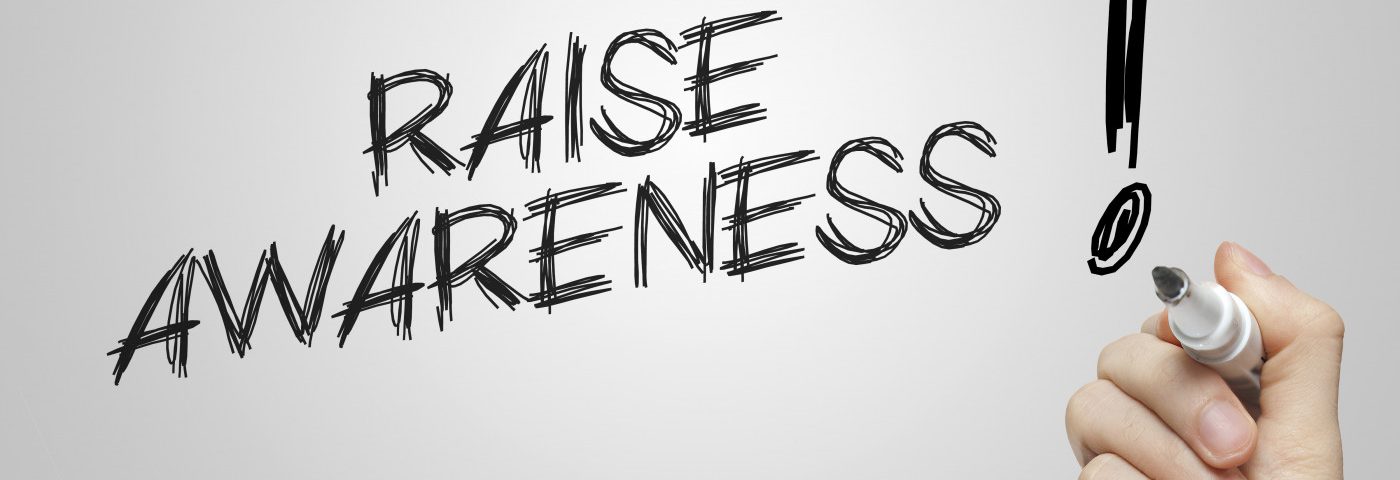Huntington’s Disease Awareness Month Goes Virtual in May Due to Pandemic
Written by |

Because of the COVID-19 pandemic, Huntington’s Disease Awareness Month organizers have come up with creative ways to show support and call attention to the disorder during May.
In past years, May has been full of fundraising and educational activities such as outdoor bake sales, group walks and runs, golf tournaments, and in-person discussions and lectures. But with most people staying at home and practicing social distancing during the pandemic, these events are being replaced, modified, or moved online.
Across the spectrum of chronic disorders, including Huntington’s disease, the pandemic has compromised access to in-person care, placing additional burdens on patients and caregivers. The Huntington’s Disease Society of America (HDSA), which largely coordinates nationwide awareness month efforts, is offering resources and information about COVID-19 and Huntington’s, including caregiving and self-care tips.
To encourage families to share their experiences with Huntington’s, HDSA has launched a social media initiative for May called #LetsTalkAboutHD. To help raise awareness about the disease’s impact on families, supporters are asked to post a story, photo, or video on social media.
Narratives about research — personal participation in a study, for instance — also are welcome, as are entries from scientists. Participants may share resources that can help shed light on Huntington’s. Those who don’t have a social media platform may submit stories to hdsa.org/myhdstory.
“During Huntington’s Disease Awareness Month, we encourage the global HD community to help raise awareness by sharing their stories through the #LetsTalkAboutHD initiative,” Louise Vetter, HDSA president and CEO, said in a statement provided to Huntington’s Disease News. “Especially during these challenging times, it’s important to show the strength and urgency of the HD community. While we have several celebrities and other influencers joining us in this effort, it’s the family stories that remind us why we do what we do every day.”
According to the toolkit put together by HDSA for the campaign, about 41,000 U.S. residents have Huntington’s, and some 200,000 are at risk of inheriting the disorder. The disease affects an estimated three to seven per 100,000 people of European ancestry. (Huntington’s appears to be less common in some other populations, including people of Japanese, Chinese, and African descent.)
In addition to key facts about Huntington’s, the toolkit offers suggestions for: how to get involved; sample video scripts, social media posts, and tweets; and a participation request letter. A social media profile frame also is available. The #LetsTalkAboutHD logo is available here, and a promotional video is available for viewing and sharing here. Supporters are encouraged to ask their favorite celebrities via Twitter to retweet their Huntington’s posts, and to ask local public figures to participate in the campaign.
To make sure families can safely access resources they may need at home, the organization this year is highlighting its online offerings, such as its telehealth program. In 2017, the HDSA launched a technology partnership with telehealth company American Well to offer free online counseling to Huntington’s patients. HDSA-trained licensed social workers and psychologists are available on American Well’s telehealth platform to help manage the emotional symptoms and burden related to the disease.
Psychiatric and behavioral problems are common in families affected by Huntington’s. The HDSA estimates that about half of patients seen at Huntington’s clinics are referred to counseling for issues including anxiety, depression, and stress management. The current pandemic may represent an additional challenge for those affected by chronic diseases like Huntington’s.
Also during May, the nonprofit organization is spotlighting its five online support groups, including one for those who have tested negative for disease-causing HTT gene mutations, but still want to remain active in the Huntington’s community. Another group is for new patients who have just begun to experience early symptoms. There also is a parent caregiver group and one for caregiver support. Another support group is for adults who are at risk of developing Huntington’s.
Due to COVID-19, the organization’s signature grassroots fundraising campaign, Team Hope Walk, also is virtual this year. Instead of walking with a team or group, the organization is asking supporters to walk by themselves on the route of their choosing. Since its 2007 inception, the program has raised more than $18 million.
In addition, the HDSA is asking supporters to take time to browse its webinar offerings and YouTube channel.
May also leads up to the 35th Annual HDSA Convention, to be held June 4–7. It, too, will be conducted virtually this year. The convention includes an online exhibit hall, workshops, research forum, and closing ceremony.
Elsewhere, in another safety-first initiative, the Huntington Society of Canada this month is highlighting its “Light It Up 4 HD” effort, which has buildings, monuments, and statues across Canada light up in blue (for Huntington’s) and purple (for juvenile Huntington’s). The organization also is asking supporters to use blue and purple lights at home, and share photos of the lighting on social media.


